Beauty News, bur bur
What Oils Are Good for Low Porosity Hair?
If you have low porosity hair, finding the right oils can make a big difference in keeping your hair healthy and moisturized. Low porosity hair has tightly packed cuticles, making it hard for moisture to penetrate the hair shaft. Choosing the right lightweight oils can help you retain moisture and improve your hair’s overall health.
Understanding Low Porosity Hair
Low porosity hair has tightly closed cuticles that form the outer layer of the hair strand. While this creates a smooth surface, it can be a challenge when it comes to moisture absorption. Moisture and nourishing products often struggle to penetrate the cuticle layer, leaving hair dry and prone to product buildup.
Characteristics of Low Porosity Hair
-
Water Resistance: Low porosity hair repels water, making it hard to fully wet during washing. The cuticles’ tight structure slows water absorption, causing products to sit on the surface rather than penetrating deeply.
-
Product Buildup: Since water and oils don’t easily absorb, products like conditioners tend to remain on top, resulting in buildup. This buildup can make hair look greasy, dull, or heavy and makes future treatments less effective.
-
Dryness and Lack of Shine: Despite using moisturizers, low-porosity hair can still feel dry because products don’t absorb deeply. Additionally, the smooth cuticle surface reflects less light, which reduces shine.
-
Long Drying Time: Low porosity hair takes longer to dry due to slow water absorption and release.
-
Resistance to Chemical Treatments: The closed cuticle structure can make low porosity hair resistant to treatments like coloring, leading to uneven results or shorter-lasting effects.
Best Oils for Low Porosity Hair
Here are some of the best oils that can benefit low porosity hair without causing buildup:
-
Jojoba Oil: This oil resembles the natural sebum produced by the scalp, making it highly compatible with low porosity hair. Lightweight and non-greasy, it absorbs easily and helps lock in moisture.
-
Argan Oil: Known for its essential fatty acids and vitamins, argan oil helps maintain moisture and adds shine without weighing down the hair.
-
Sweet Almond Oil: A light oil rich in nutrients, almond oil seals moisture into the hair cuticles and can reduce frizz in low-porosity hair.
-
Grapeseed Oil: This lightweight oil helps retain moisture and promotes scalp health. It doesn’t weigh down the hair and helps protect the hair shaft.
-
Burdock Oil: Great for strengthening and improving scalp health, burdock oil stimulates blood flow, promotes hair growth, and enhances hair elasticity.
-
Avocado Oil: While heavier than some oils, avocado oil is nutrient-rich and supports moisture retention and deep conditioning treatments. It’s ideal for use in a warm towel or shower cap deep conditioning routine.
Oils to Avoid
Some oils can cause buildup and leave low-porosity hair feeling greasy or heavy. Here are a few to be cautious with:
-
Mineral Oil: This synthetic oil creates a seal around hair strands, but it prevents moisture from entering. Mineral oil often sits on top of the hair, leading to buildup that can weigh down hair and make it look dull.
-
Castor Oil: Known for its thickness, castor oil’s sticky consistency isn’t ideal for low porosity hair. While it promotes scalp health, its large molecules prevent it from being absorbed, leading to a greasy appearance and product buildup.
-
Coconut Oil: Although coconut oil is known for its penetration, its thicker consistency can be difficult for low porosity hair to absorb. This can lead to buildup, blocking other beneficial treatments from reaching the cuticle. Coconut oil can still be used sparingly to seal moisture after applying a leave-in conditioner.
Conclusion
Incorporating natural, lightweight oils like jojoba, argan, and burdock oil into your hair routine can help keep low-porosity hair healthy, shiny, and moisturized. With the right products and a little extra care, you can keep your hair hydrated and looking beautiful!


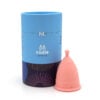
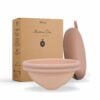









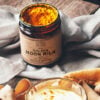






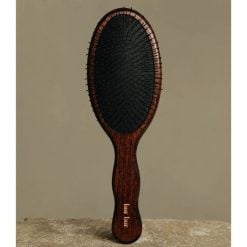
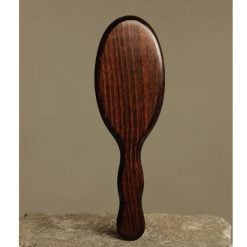


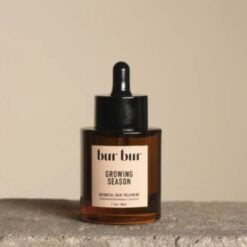
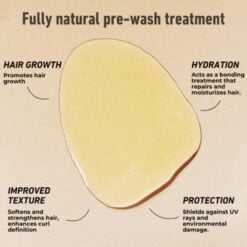







 Beauty Products
Beauty Products By Skintype
By Skintype Brands A-Z
Brands A-Z Wellness
Wellness Health / Nutrition
Health / Nutrition